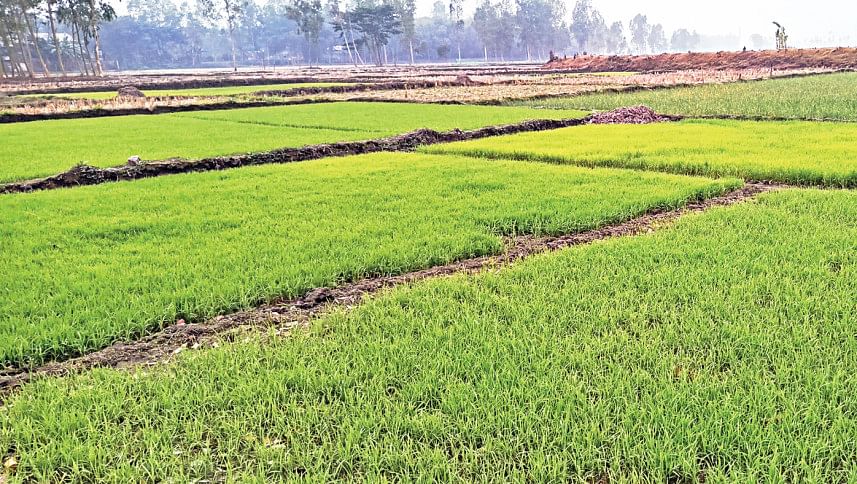Don’t transplant Boro seedlings during cold spell: DAE

The Department of Agricultural Extension (DAE) has advised farmers not to transplant seedlings of Boro paddy during the cold spell.
The advisory comes as the country is likely to see a cold wave from today, affecting the cultivation of the dry-season rice Boro and increasing the risk of pest attacks on potatoes and mustard in the fields.
The weather office earlier this month forecast a cold spell for a couple of days.
The DAE targets to ensure the cultivation of the dry-season variety of the food staple on 50.69 lakh hectares so that 2.26 crore tonnes of rice can be produced in the current fiscal year, said Sarker Shafi Uddin Ahmed, director-in-charge of the Field Service Wing of the DAE.
Boro production rose by 1.45 percent year-on-year to 2.10 crore tonnes in fiscal year 2023-24.
The dry-season Boro, which accounts for roughly 55 percent of total annual rice production, is cultivated between December and January and harvested mainly in May.
In its advisory, the Bangladesh Agro-Meteorological Information Service (BAMIS), a project under the DAE, suggested that farmers use transparent polythene to cover the seedlings for protection from fog if sunlight is visible during the day.
Besides, water should be removed from the fields every morning during the cold spell. BAMIS advises using tube-well water in a way that keeps the seedlings above the water level.
The DAE said that seedlings may suffer from blight diseases -- a bacterial disease that can severely damage crops.
It suggests using fungicide and spraying to control the disease.
The agency said that unfavourable weather may also cause pest attacks on potatoes, one of the most widely consumed vegetables, and mustard, the main oilseed crop in Bangladesh.
In its weather forecast yesterday, the Bangladesh Meteorological Department (BMD) said that weather across the country is likely to remain mainly dry with temporary partly cloudy skies.
It said that moderate to dense fog may occur across the country from midnight to morning and may continue until tomorrow.

 For all latest news, follow The Daily Star's Google News channel.
For all latest news, follow The Daily Star's Google News channel. 



Comments